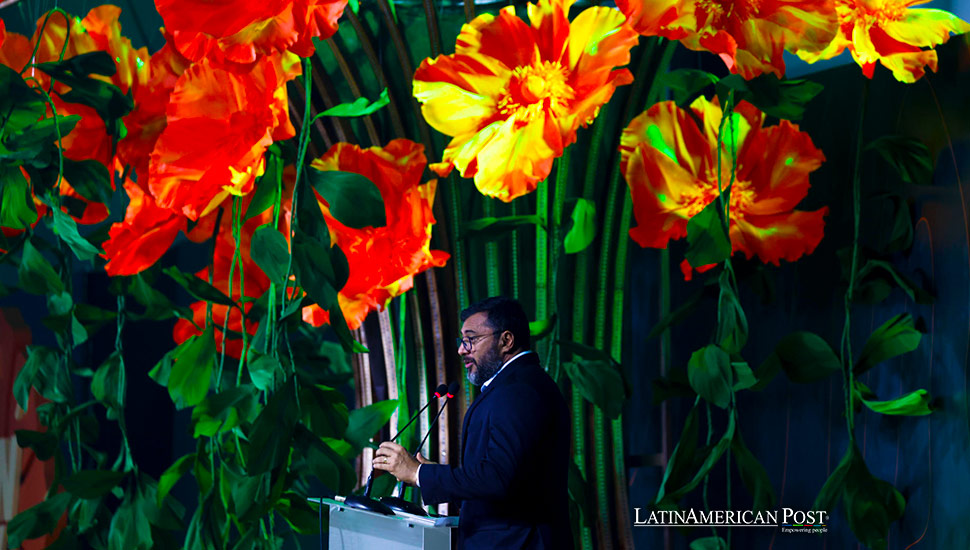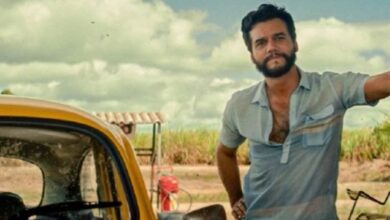BID Invest Week in Manaus Focuses on Brazil’s Sustainability Goals

BID Invest’s Sustainability Week in Manaus began with a focus on creating economic opportunities to preserve biodiversity in Latin America, highlighting the urgent environmental challenges and the need for collaboration between governments and the private sector.
BID Invest, the private sector arm of the Inter-American Development Bank (IDB), demonstrated its leadership and commitment to sustainability by launching its Sustainability Week in Manaus, Brazil. The event, with a strong focus on using economic opportunities as a tool for preserving biodiversity, was a testament to BID Invest’s dedication to the cause. The opening session, led by BID Invest CEO James Scriven, underscored the significant environmental challenges facing Latin America, particularly the Amazon region, which experienced its worst drought last year.
Scriven, in his address to an audience of approximately 900 attendees, with an additional 50,000 people following the forum online, underscored the urgency of the environmental challenges in Latin America. He highlighted the increasing frequency and severity of climate events, rising CO2 emissions, higher levels of food insecurity, and the Amazon basin’s approaching critical point. Despite the gravity of these issues, Scriven expressed optimism, emphasizing the necessity for collaboration between governments and the private sector to tackle these problems effectively.
Preserving Biodiversity through Economic Development
One of the key initiatives highlighted during the event was “Amazonía Siempre,” a program launched a year ago by BID Invest to promote the economic development of the Amazon region while preserving its biodiversity. Scriven stressed the importance of combining the preservation of tropical forests with creating opportunities for the 50 million people in the Amazon basin.
Being in Manaus, the heart of the Amazon, is crucial for gaining a deeper understanding of the region’s challenges. Scriven emphasized the need to “think locally, act globally, and implement differently.” He also pointed out the significance of investing in employment opportunities for the local population, aligning with the call made by Wilson Lima, the governor of the Brazilian state of Amazonas, during the event’s opening.
Governor Lima highlighted the necessity of providing basic needs for the citizens living in the forest’s interior who help preserve nature. He mentioned that “no sustainability project can succeed without investing in the private sector and strengthening productive chains.”
Engaging the Private Sector
The private sector’s involvement is vital in achieving the goals set out during BID Invest’s Sustainability Week. The event features around 50 presentations over three days, with participation from executives across various industries, including banking, technology, and food. These sessions aim to foster dialogue and partnerships that can drive sustainable development in the region.
Scriven’s optimism about the potential for collaboration was evident as he called for a unified effort to address environmental challenges. “No one can solve this alone,” he stated, underscoring the importance of partnerships in creating effective solutions. By engaging the private sector, BID Invest hopes to leverage resources and expertise to implement projects that benefit the environment and local communities. Your involvement, as stakeholders from different sectors and regions, is crucial in this endeavor, and your contributions can make a significant difference in our sustainability efforts.
The private sector’s role in sustainability extends beyond financial investment. Companies can contribute through innovative technologies, sustainable practices, and corporate social responsibility initiatives. By aligning business goals with environmental and social objectives, the private sector can play a transformative role in preserving the Amazon and other critical ecosystems in Latin America.
Addressing Climate and Environmental Challenges
Throughout the event, various speakers highlighted the urgent need to address climate and environmental challenges in the Amazon region. The discussions covered topics such as deforestation, habitat destruction, and the impacts of climate change on local communities and biodiversity. The Amazon basin, often called the “lungs of the Earth,” is crucial in regulating the global climate, making its preservation an international priority.
Scriven pointed out that the Amazon is nearing a tipping point, where continued environmental degradation could lead to irreversible damage. The region’s biodiversity is at risk, with many species facing extinction due to habitat loss and climate change. This is not a distant threat, but a pressing issue that requires immediate and sustained action. Addressing these challenges requires a multifaceted approach that includes conservation efforts, sustainable development, and climate adaptation strategies.
Other speakers echoed the urgency of the situation, calling for immediate and sustained action to protect the Amazon. They stressed the importance of integrating environmental sustainability into economic development plans, ensuring that growth does not come at the expense of the environment. The region can develop economically while preserving its natural resources by promoting sustainable practices, such as agroforestry and ecotourism.
Fostering Local and Global Solutions
BID Invest’s Sustainability Week aims to foster local and global solutions to Amazon’s environmental challenges. The event seeks to create a collaborative platform for sharing ideas and best practices by bringing together stakeholders from different sectors and regions. This approach aligns with Scriven’s call to “think locally, act globally,” recognizing that solutions must be tailored to local contexts while contributing to global sustainability goals. Your participation and ideas are invaluable in this process, and we believe that together, we can make a significant impact.
One of the event’s key messages is the need for innovative approaches to conservation and development. These innovative approaches, discussed in detail during the event, include the use of digital technologies for monitoring and managing natural resources, promoting sustainable practices such as agroforestry and ecotourism, and integrating environmental sustainability into economic development plans. By embracing these innovative strategies, stakeholders can develop new solutions that enhance the resilience of ecosystems and communities.
For instance, digital technologies can significantly contribute to monitoring and managing natural resources. Satellite imagery, remote sensing, and data analytics can provide real-time information on deforestation, land use changes, and biodiversity trends. This information can help policymakers and conservationists make informed decisions and respond quickly to emerging threats.
A Path Forward
BID Invest’s Sustainability Week in Manaus underscores the critical importance of creating economic opportunities to preserve biodiversity in Latin America. The event highlights the region’s urgent environmental challenges and the need for collaboration between governments, the private sector, and local communities. By fostering partnerships and promoting innovative solutions, BID Invest aims to drive sustainable development that benefits people and the planet.
The discussions during Sustainability Week emphasize that preserving the Amazon and other critical ecosystems is not just a regional issue but a global imperative. The Amazon’s health impacts the global climate, biodiversity, and the well-being of millions of people. Therefore, the efforts to protect and sustainably develop the region require a concerted effort from all stakeholders.
Also read: IATA Challenges Brazil on High Jet Fuel Costs, Seeks Change
As BID Invest continues to support initiatives like Amazonía Siempre, it is essential to maintain the momentum generated during Sustainability Week. The event serves as a reminder that while the challenges are significant, so are the opportunities. By working together and leveraging the strengths of different sectors, we can create a sustainable future for Amazon and the communities that depend on it. The path forward is clear: we must act now to preserve our planet’s most valuable natural resources for future generations.





